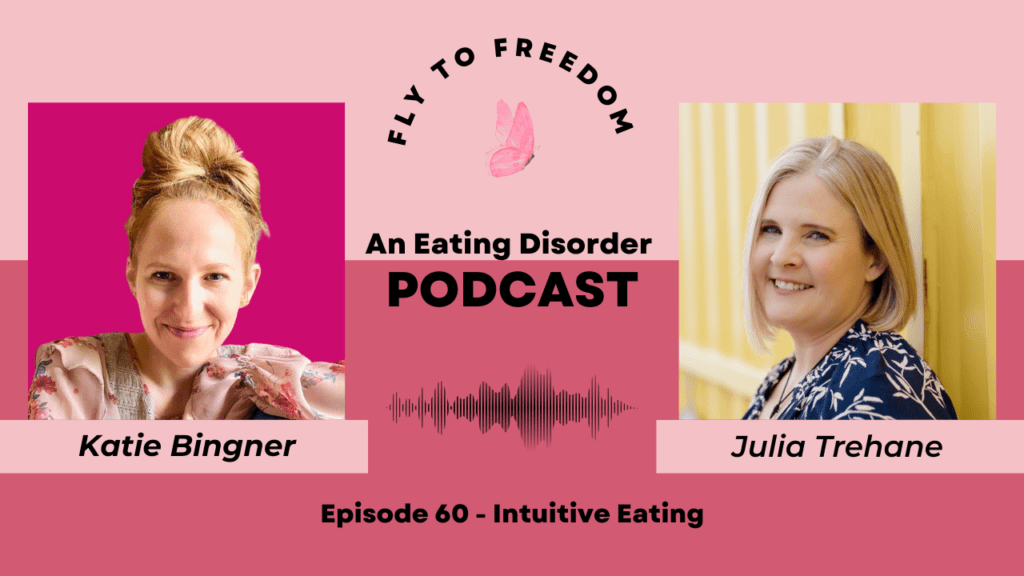Eating disorders like anorexia are complex conditions that disrupt not just a person’s relationship with food but their connection to their body, emotions, and sense of self. As a recovery coach, I’ve witnessed firsthand the power of healing through intuitive eating—a compassionate, science-backed approach that helps individuals reclaim control over their bodies and lives.
What Is Intuitive Eating?
Intuitive eating is an evidence-based approach developed by Evelyn Tribole and Elyse Resch that moves away from the restriction and control associated with diets. It focuses on listening to your body’s natural hunger and fullness cues rather than relying on external food rules. For those recovering from anorexia, intuitive eating is not just about food—it’s about learning to trust your body again after years of disconnection.
The principles of intuitive eating include rejecting the diet mentality, honoring your hunger, making peace with food, and respecting your fullness. However, for someone recovering from anorexia, this can feel overwhelming. Years of rigid control over food intake make it difficult to let go, but with the right support, intuitive eating becomes a pathway to healing.
Scientific Support for Intuitive Eating
Research consistently supports the effectiveness of intuitive eating in improving both physical and mental health. Studies highlight the following benefits:
- Improved psychological well-being: A 2019 study in the Journal of Eating Disorders found that individuals practicing intuitive eating experienced reduced symptoms of depression and anxiety, increased self-esteem, and better body image.
- Reduced disordered eating behaviors: Research shows that intuitive eating helps reduce binge-eating episodes and food obsession by encouraging a healthier relationship with food.
- Enhanced physical health: Intuitive eaters tend to maintain healthier metabolic markers, such as more stable blood sugar levels and improved cardiovascular health. A study in Appetite showed that individuals who practiced intuitive eating had better long-term health outcomes compared to those on restrictive diets.
Challenges in Transitioning for Anorexia Recovery
For individuals recovering from anorexia, intuitive eating can be particularly challenging. After years of restrictive eating, it’s common to feel disconnected from hunger and fullness cues. As Katie Bingner explained in my podcast, the path to intuitive eating isn’t linear—it’s filled with setbacks and obstacles, especially for those in recovery.
One significant challenge is differentiating between emotional hunger and physical hunger. Emotional hunger often stems from past trauma or unresolved feelings, while physical hunger signals the body’s need for nourishment. It takes time, practice, and patience to recognize these differences, and for many, professional support is crucial.
For more on overcoming these challenges, see my blog post on “Navigating Weight Gain and Extreme Hunger During Anorexia Recovery“, which dives deeper into the anxieties and realities of refeeding.
The Power of a Supportive Environment
Recovery from anorexia requires a strong support system. Engaging with professionals—such as eating disorder coaches, dietitians, and therapists—helps you navigate the emotional aspects of healing while ensuring you get the right nutrition. My coaching focuses on personalized support for those who struggle with reconnecting with their body’s cues.
I also encourage clients to create an environment that supports their journey, including curating social media feeds that promote body positivity and unfollowing diet-culture influencers. This active resistance to the pervasive diet mentality is crucial for rebuilding a healthy relationship with food and your body.
You can read more about resisting diet culture in my article “Going ALL IN! How to Commit Fully to Reclaiming Your Life“, which discusses the importance of full engagement in recovery.
Self-Compassion: The Foundation of Intuitive Eating
Self-compassion is a key element of intuitive eating. The process of recovery requires you to be kind to yourself, especially during setbacks. Learning to treat yourself with the same patience and understanding that you would offer to a friend helps ease the recovery journey.
Practicing daily affirmations or engaging with mindfulness techniques are great ways to foster self-compassion. I send out daily mantras to my email list, specifically designed for those in recovery. These mantras serve as gentle reminders to approach each day with self-kindness and patience.
For more insights on fostering self-compassion and resilience, check out my blog post “Unlocking Inner Child Healing for Lasting Anorexia Recovery“, where I discuss the deep emotional healing that can aid in the recovery process.
Resisting the Pull of Diet Culture
The pervasive influence of diet culture can make recovery from an eating disorder especially difficult. Diet culture promotes restrictive eating, demonizes certain foods, and idealizes thinness—all of which can derail your progress toward intuitive eating.
Actively resisting diet culture involves curating the media you consume. Follow individuals and organizations that celebrate body diversity and health at every size. This not only helps you stay motivated but also reinforces the principles of intuitive eating.
Long-Term Benefits of Intuitive Eating
The benefits of intuitive eating extend far beyond the short-term. By learning to trust your body and listen to its needs, you experience freedom from the anxiety and guilt often associated with food. Intuitive eating fosters a sustainable relationship with food, making it a crucial tool for lifelong health and well-being.
It also enables individuals to move away from using food as a coping mechanism, allowing them to fully engage with life again. Breaking free from food rules creates space for joy, spontaneity, and emotional balance.
I recorded this episode of Fly To Freedom with intuitive eating expert Katie Bingner. Have a listen by clicking on the image
Five Actionable Steps for Your Journey:
- Rebuild Your Body Trust: Begin journaling your hunger and fullness signals. Reflect without judgment to reconnect with your body’s needs.
- Seek Personalized Support: Professional help is invaluable. As a recovery coach, I provide one-on-one guidance tailored to your specific challenges. Connect with me for my gold standard 1:1 coaching, the fastest way to recover from anorexia
- Embrace Self-Compassion: Sign up for my daily mantras to receive affirmations that support your recovery process.
- Educate Yourself: Continue learning about intuitive eating by following my podcast Fly To Freedom and reading related blog posts.
- Reject Diet Culture: Take control of your media environment by unfollowing accounts that promote restrictive diets and unrealistic body standards.
By embracing intuitive eating and surrounding yourself with supportive resources, you can break free from the cycle of disordered eating and move toward lasting recovery. Remember, healing is a process—be patient with yourself and lean into the support available to you.
If you’d like me to help you through your recovery, with proper, effective, science backed techniques and everything you need to create a better life, free from your eating disorder, reach out to me and take that 1st step. Oh, and this part is free of charge by the way!


